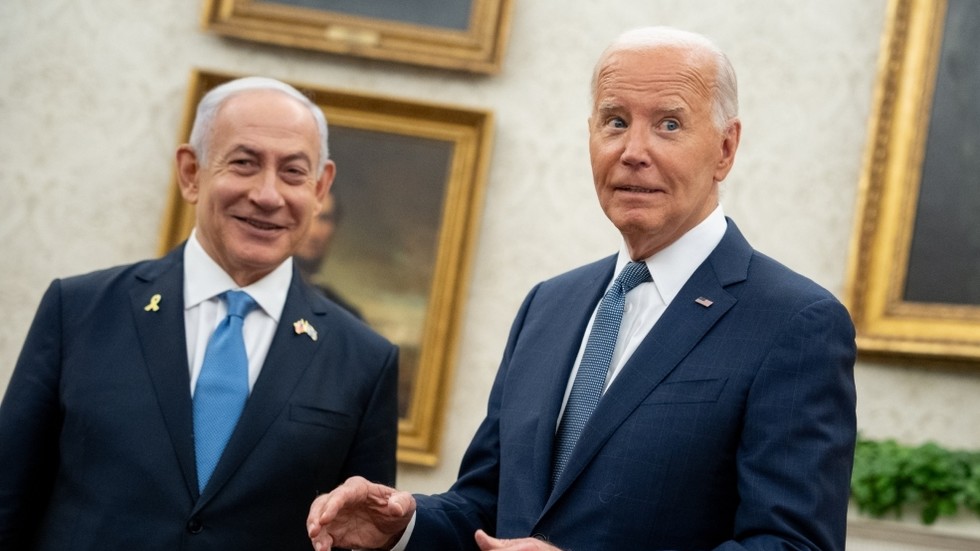World
Politico: Biden Expresses Frustration with Israel’s Actions

President Joe Biden is reportedly frustrated with Israel over its recent actions, as reported by Politico. The tension highlights growing concerns within the U.S. administration regarding Middle East policies.
According to a report by Politico on Wednesday, U.S. President Joe Biden is acknowledging more frequently his inability to influence Israel’s military actions, as shared by two anonymous White House officials.
According to the report, President Biden and his aides experienced “repeated frustration” with Israel’s military actions in Gaza, particularly concerning the high number of Palestinian civilian casualties. The report further noted that Israeli Prime Minister Benjamin Netanyahu has disregarded advice from the United States.
Politico reported that as President Biden’s influence over Netanyahu diminished, his frustration increased. The publication mentioned unnamed officials who claimed that phone calls between the two leaders have “increasingly turned into shouting matches.”
The situation represents a recognition that President Biden might not be able to stop a “regional war” in the Middle East, according to the magazine. As a result, Biden has been compelled to focus on “limiting Israel’s response rather than trying to dissuade it completely.”
The report was released a day following Israel’s launch of ground raids targeting Hezbollah in southern Lebanon. According to the IDF, this operation, alongside intense airstrikes, aims to halt cross-border rocket and mortar attacks by Hezbollah.
On Wednesday, Iran launched close to 200 missiles toward Israel in what it claimed was retaliation for “genocide” occurring in Gaza and Lebanon. The action was also described as a response to the assassinations of prominent figures within the “Palestinian resistance,” including Hamas political chief Ismail Haniyeh and Hezbollah leader Hassan Nasrallah.
READ ALSO: Israeli Jets Launch Airstrikes on Lebanon Targets – IDF Releases Video
The US expressed support for Israel’s right to defend itself and encouraged it to exercise restraint when responding to Iran, Hamas, and Hezbollah.
Biden has resisted demands from pro-Palestinian groups and certain Democrats to halt arms supplies to Israel, despite the UN’s repeated accusations of indiscriminate attacks on civilians by the IDF. Simultaneously, Washington’s attempts to broker a ceasefire between Israel and Gaza have not succeeded.
Politico first reported that the U.S. had discreetly sanctioned Israel’s military operations in Lebanon, even while publicly advising the Jewish state to pursue a ceasefire with Hezbollah. However, in an update on Wednesday, Politico stated that Israel did not inform the U.S beforehand about “the specifics” of its attacks, which supposedly upset the White House.
On Wednesday, Biden informed reporters that he would not endorse Israeli attacks on Iranian nuclear sites. While Israel has kept the specifics and extent of its planned response undisclosed, hardliners such as former Prime Minister Naftali Bennett have encouraged the government to focus on Iran’s nuclear program.
Russia has firmly criticized Washington’s strategy in the Middle East. According to Foreign Ministry spokeswoman Maria Zakharova, this reflects “the inability
